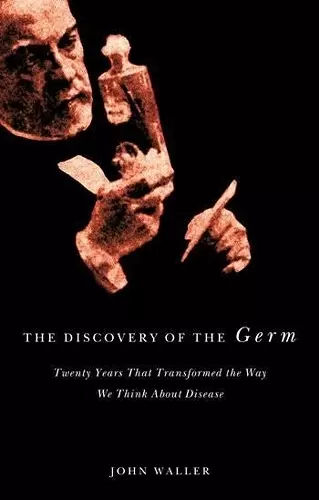The Discovery of the Germ
Twenty Years That Transformed the Way We Think About Disease
Format:Hardback
Publisher:Columbia University Press
Published:14th Nov '03
Currently unavailable, and unfortunately no date known when it will be back

The discovery of the germ led to safe surgery, large-scale vaccination programs, dramatic improvements in hygiene and sanitation, and the pasteurization of dairy products. Above all, it set the stage for the emergence of antibiotic medicine. This book deals with the ideas and experiments of the giants of microbiology, Pasteur and Koch, as well as less-well known figures such as Casimir-Joseph Davaine and Max von Pettenkofer.
From the time of Hippocrates to that of Louis Pasteur, the medical profession relied on plausible but almost wholly mistaken ideas about the causes of and best treatments for infectious illness. Bleeding, purging, and mysterious nostrums remained staple remedies, and surgeons, often wearing filthy butcher's aprons, blithely spread infection from patient to patient. Then between 1879 and 1900 came the germ revolution. After two decades of scientific virtuosity, outstanding feats of intellectual courage, bitter personal rivalries, and a large dose of good fortune, doctors came to realize infectious diseases are caused by microscopic organisms. The discovery of the germ led to safe surgery, large-scale vaccination programs, dramatic improvements in hygiene and sanitation, and the pasteurization of dairy products. Above all, it set the stage for the emergence of antibiotic medicine. John Waller provides insight into twenty years in the history of medicine that profoundly changed the way we view disease. He shows how the germ revolution was made possible not only by the risk taking and raw ambition of several brilliant late-century pioneers, but also by the groundwork-including mistakes and near misses-of earlier generations of scientists. Rich in human drama, The Discovery of the Germ charts how, why, and by whom germ theory was transformed from a hotly disputed speculation to a central tenet of modern medicine. It examines the ideas and experiments of the giants of microbiology, Louis Pasteur and Robert Koch, as well as less well known figures such as Casimir-Joseph Davaine, Waldemar Haffkine, and Almroth Wright.
Waller skillfully tells the tale of mankind surfacing to scientific and medical enlightenment after millennia spent in a cave: little book, big story. Booklist Waller presents a new telling of an old tale... The development of the germ theory was hardly linear; fields as diverse as agriculture, sericulture, or surgery contributed necessary pieces. Walter handles these diverse threads and weaves a coherent narrative out of them... Highly recommended. Choice [A]n excellent read for a general audience and packs a lot of information on the beginnings of the microbiology of disease. Science Books and Films large in human drama...It is a history book that reads like a novel. Highly recommended for all academic libraries -- Jitka Hurych E-Streams This engaging book reads as a success story of scientific progress. -- Marjorie C. Malley ISIS
ISBN: 9780231131506
Dimensions: unknown
Weight: unknown
200 pages